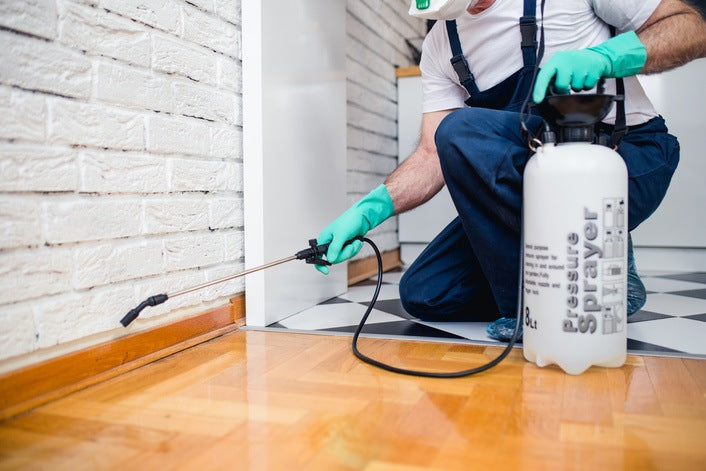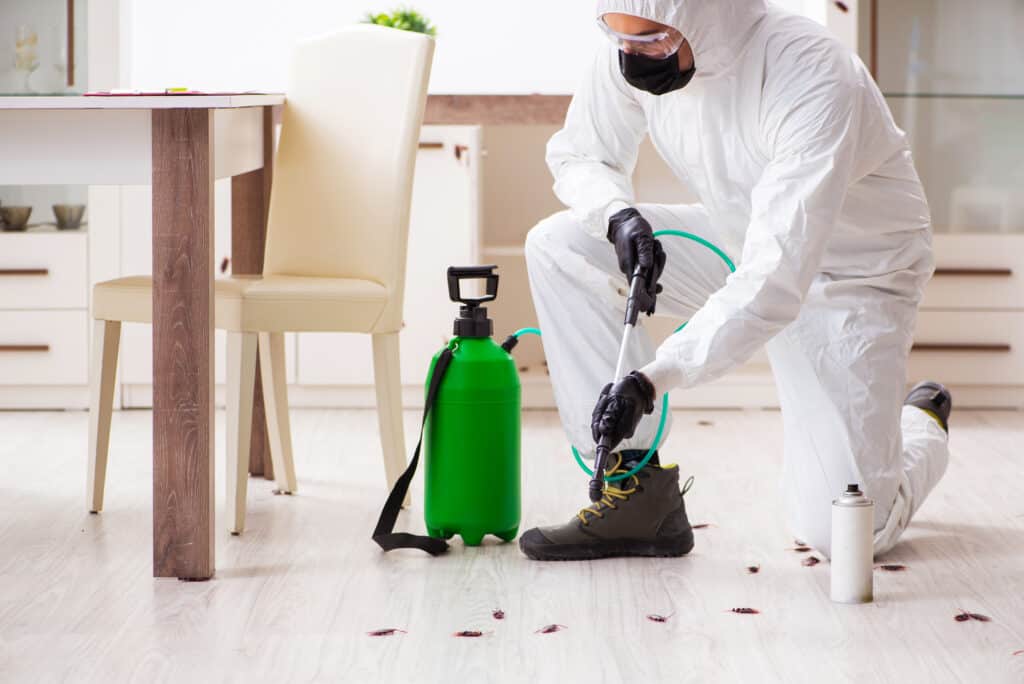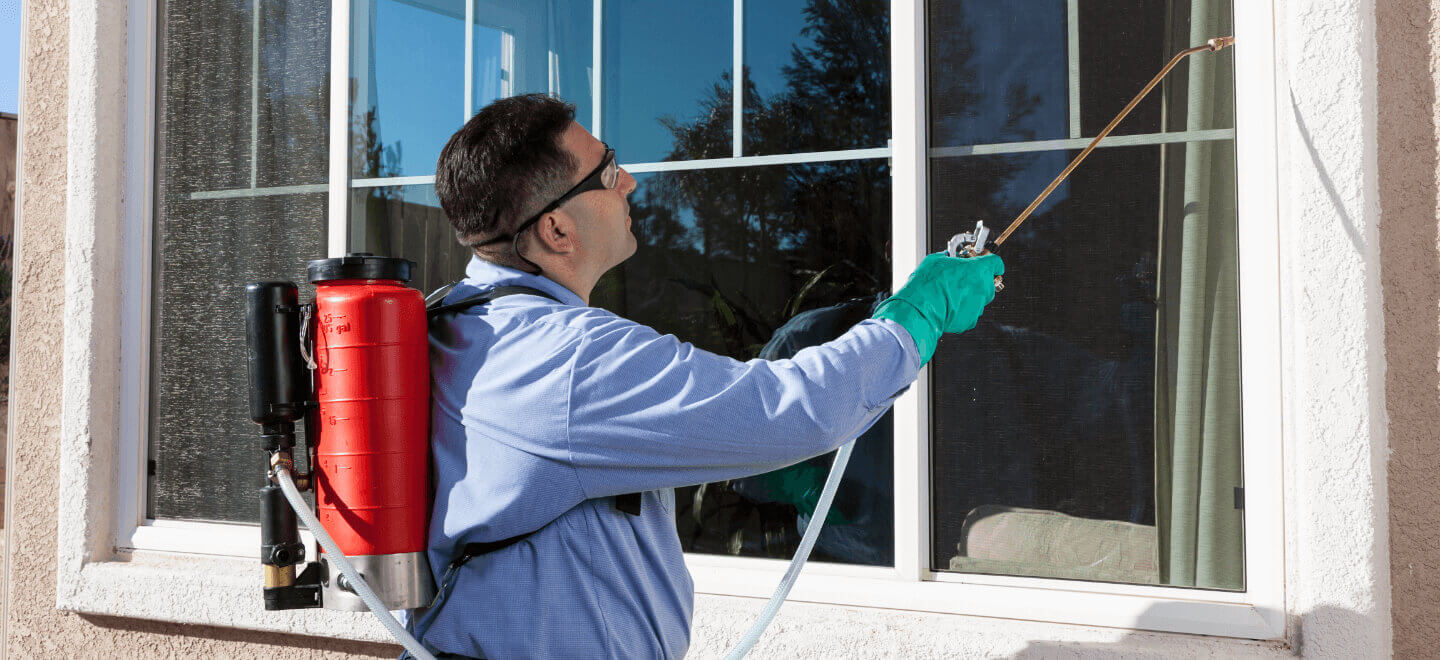Orem Pest Control Solutions: Safeguarding Your Home, Throughout
Orem Pest Control Solutions: Safeguarding Your Home, Throughout
Blog Article
Discovering the Different Sorts Of Insect Control Techniques and Their Applications
Parasite control is an important element of preserving a secure and healthy and balanced environment, whether it be in domestic, industrial, or farming settings. From chemical approaches that target certain insects to biological techniques that harness natural killers, the realm of bug control is varied and substantial.
Chemical Pest Control Strategies
Chemical parasite control methods are commonly made use of in farming and pest administration to properly get rid of or manage pest invasions. These approaches involve making use of chemical substances, such as pesticides, pesticides, and herbicides, to decrease or get rid of bug populations that position a danger to crops, livestock, or human wellness. Chemicals, for example, target particular parasites like weeds, rats, or pests, disrupting their life process or causing straight damage upon get in touch with. Herbicides are specifically made to manage unwanted vegetation that takes on plants for sources and nutrients. Insecticides, on the other hand, are utilized to fight insect bugs that can harm plants and transmit diseases.
While chemical parasite control techniques can be extremely effective in taking care of parasite populaces, they likewise raise worries concerning possible ecological and health and wellness dangers. Incorrect use or overuse of chemical pesticides can bring about contamination of air, water, and soil, hurting non-target microorganisms and creating long-lasting eco-friendly damage. Additionally, repeated exposure to chemical deposits might present health threats to farmworkers, consumers, and wildlife. It is crucial to follow safety and security guidelines, use integrated pest management approaches, and take into consideration alternative methods to minimize the negative impacts of chemical insect control techniques.
Biological Insect Control Techniques
 Biological pest control approaches make use of living microorganisms to minimize and take care of insect populaces in a environmentally pleasant and lasting way. One typical approach is the launch of ladybugs to battle aphids in gardens, as ladybugs are all-natural killers of these damaging bugs.
Biological pest control approaches make use of living microorganisms to minimize and take care of insect populaces in a environmentally pleasant and lasting way. One typical approach is the launch of ladybugs to battle aphids in gardens, as ladybugs are all-natural killers of these damaging bugs.
Organic bug control techniques provide numerous advantages over chemical techniques. They are commonly safer for the setting, as they do not leave unsafe deposits or contribute to pollution. Furthermore, these techniques are often a lot more targeted, impacting only the bug varieties without hurting valuable bugs or various other microorganisms. Organic control can be a lasting option, as the introduced organisms can establish lasting populaces and give continuous bug management. On the whole, biological parasite control techniques offer a effective and all-natural alternative to conventional chemical therapies, advertising a well balanced ecosystem and healthier settings.
Physical Pest Control Approaches
Using physical methods to manage pests entails making use of non-chemical or mechanical methods to reduce and take care of parasite problems efficiently. These strategies count on physical obstacles, traps, and various other methods to hinder and get rid of pests without making use of harmful chemicals. One typical physical insect control method is the installation of fences, displays, or webs to obstruct pests from getting in specific areas. This technique is specifically reliable in maintaining out bugs and tiny animals from yards or buildings.
One more physical more tips here method is the use of traps, such as snap traps for rats or pheromone catches for pests. These catches purpose to record pests without posturing any type of risk to human beings or the environment. Furthermore, physical control methods can include techniques like handpicking parasites off plants, using vacuum cleaner tools to get rid of insects, or employing warmth treatments to eliminate bed pests and various other insects in ravaged areas.
Integrated Pest Administration Strategies
Carrying out a holistic technique to pest monitoring, Integrated Parasite Management (IPM) approaches aim to incorporate numerous reliable techniques to avoid and manage pest invasions while minimizing ecological influence and making sure lasting pest control methods. IPM entails the integration of numerous control techniques such as organic control, cultural techniques, mechanical control, and the mindful use pesticides.

In addition, IPM emphasizes the importance of surveillance and examining pest populations to establish the most proper control techniques. By carrying out IPM strategies, pest control efforts become extra targeted and efficient, reducing the risks related to too much chemical usage and promoting long-term insect management solutions.
All-natural and Organic Insect Control Options

One preferred natural pest control approach is neem oil, originated from the seeds of the neem tree, which serves as a repellent and interferes with the growth and development of insects. Diatomaceous earth, a natural silica-based powder, is one more reliable natural insect control option that works by drying out insects upon call. By integrating all-natural and natural pest control options into pest monitoring techniques, individuals can successfully regulate bugs while minimizing injury to the atmosphere and promoting sustainable practices.
Final Thought
In verdict, various bug control techniques such as chemical, biological, physical, incorporated pest management, and all-natural options are readily available for efficiently handling parasite invasions. Each method has its very own benefits and applications depending upon the sort of parasite and the setting. By understanding the various kinds of parasite control strategies and their applications, people can make enlightened choices on the most proper technique to manage bugs and shield their residential property.
Chemical parasite control methods are widely used in agriculture and pest administration to successfully remove or regulate pest invasions - Orem Pest Control. All-natural parasite control approaches involve utilizing biological control agents, such as parasites or predators, to handle pest populations. By including natural and natural pest control choices right into parasite monitoring strategies, individuals can properly manage pests while reducing damage to the environment and promoting lasting practices
In conclusion, numerous pest control techniques such as chemical, organic, physical, integrated insect monitoring, and all-natural alternatives are offered for successfully managing bug invasions. By comprehending the different kinds of parasite control techniques and their applications, individuals can make enlightened choices on the most suitable strategy to control pests and secure their home.
Report this page